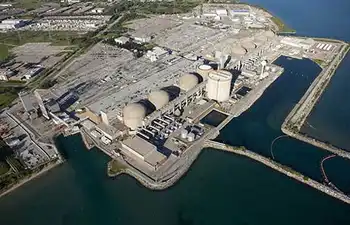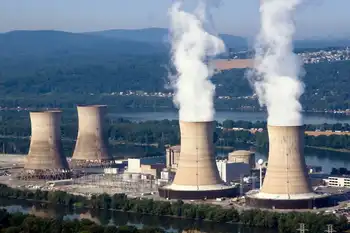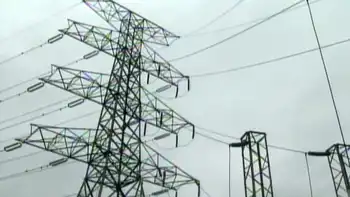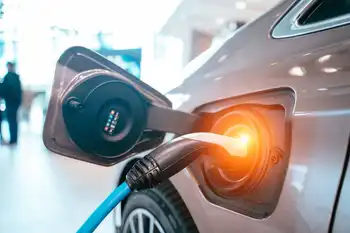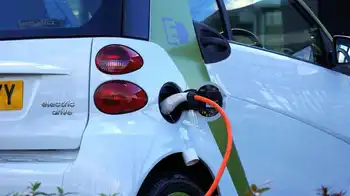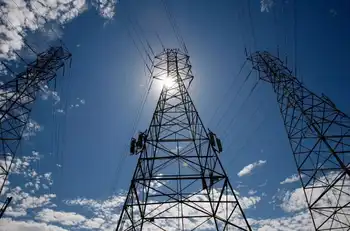Alberta Lithium Brine can power EV batteries via direct lithium extraction, leveraging oilfield infrastructure and critical minerals policy to build a low-carbon supply chain with clean energy, lower emissions, and domestic manufacturing advantages.
Key Points
Alberta lithium brine is subsurface saline water rich in lithium, extracted via DLE to supply EV batteries.
✅ Uses direct lithium extraction from oilfield brines
✅ Leverages Alberta infrastructure and skilled workforce
✅ Supports EV battery supply chain with lower emissions
After a most difficult several months, Canadians are cautiously emerging from their COVID-19 isolation and confronting a struggling economy.
There’s a growing consensus that we need to build back better from COVID-19, and to position for the U.S. auto sector’s pivot to electric vehicles as supply chains evolve. Instead of shoring up the old economy as we did following the 2008 financial crisis, we need to make strategic investments today that will prepare Canada for tomorrow’s economy.
Tomorrow’s energy system will look very different from today’s — and that tomorrow is coming quickly. The assets of today’s energy economy can help build and launch the new industries required for a low-carbon future. And few opportunities are more intriguing than the growing lithium market.
The world needs lithium – and Alberta has plenty
It’s estimated that three billion tonnes of metals will be required to generate clean energy by 2050. One of those key metals – lithium, a light, highly conductive metal – is critical to the construction of battery electric vehicles (BEV). As global automobile manufacturers design hundreds of new BEVs, demand for lithium is expected to triple in the next five years alone, a trend sharpened by pandemic-related supply risks for automakers.
Most lithium today originates from either hard rock or salt flats in Australia and South America. Alberta’s oil fields hold abundant deposits of lithium in subsurface brine, but so far it’s been overlooked as industrial waste. With new processing technologies and growing concerns about the security of global supplies, this is set to change. In January, Canada and the U.S. finalized a Joint Action Plan on Critical Minerals to ensure supply security for critical minerals such as lithium and to promote supply chains closer to home, aligning with U.S. efforts to secure EV metals among allies worldwide.
This presents a major opportunity for Canada and Alberta. Lithium brine will be produced much like the oil that came before it. This lithium originates from many of the same reservoirs responsible for driving both Alberta’s economy and the broader transportation fuel sector for decades. The province now has extensive geological data and abundant infrastructure, including roads, power lines, rail and well sites. Most importantly, Alberta has a highly trained workforce. With very little retooling, the province could deliver significant volumes of newly strategic lithium.
Specialized technologies known as direct lithium extraction, or DLE, are being developed to unlock lithium-brine resources like those in Canada. In Alberta, E3 Metals* has formed a development partnership with U.S. lithium heavyweight Livent Corporation to advance and pilot its DLE technology. Prairie Lithium and LiEP Energy formed a joint venture to pilot lithium extraction in Saskatchewan. And Vancouver’s Standard Lithium is already piloting its own DLE process in southern Arkansas, where the geology is very similar to Alberta and Saskatchewan.
Heavy on quality, light on emissions
All lithium produced today has a carbon footprint, most of which can be tied back to energy-intensive processing. The purity of lithium is essential to battery safety and performance, but this comes at a cost when lithium is mined with trucks and shovels and then refined in coal-heavy China.
As automakers look to source more sustainable raw materials, battery recycling will complement responsible extraction, and Alberta’s experience with green technologies such as renewable electricity and carbon capture and storage can make it one of the world’s largest suppliers of zero-carbon lithium.
Beyond raw materials
The rewards would be considerable. E3 Metals’ Alberta project alone could generate annual revenues of US$1.8 billion by 2030, based on projected production and price forecasts. This would create thousands of direct jobs, as initiatives like a lithium-battery workforce initiative expand training, and many more indirectly.
To truly grow this industry, however, Canada needs to move beyond its comfort zone. Rather than produce lithium as yet another raw-commodity export, Canadians should be manufacturing end products, such as batteries, for the electrified economy, with recent EV assembly deals underscoring Canada’s momentum. With nickel and cobalt refining, graphite resources and abundant petrochemical infrastructure already in place, Canada must aim for a larger piece of the supply chain.
By 2030, the global battery market is expected to be worth $116 billion annually. The timing is right to invest in a strategic commodity and grow our manufacturing sector. This is why the Alberta-based Energy Futures Lab has called lithium one of the ‘Five big ideas for Alberta’s economic recovery.’ The assets of today’s energy economy can be used to help build and launch new resource industries like lithium, required for the low-carbon energy system of the future.
Industry needs support
To do this, however, governments will have to step up the way they did a generation ago. In 1975, the Alberta government kick-started oil-sands development by funding the Alberta Oil Sands Technology and Research Authority. AOSTRA developed a technology called SAGD (steam-assisted gravity drainage) that now accounts for 80% of Alberta’s in situ oil-sands production.
Canada’s lithium industry needs similar support. Despite the compelling long-term economics of lithium, some industry investors need help to balance the risks of pioneering such a new industry in Canada. The U.S. government has recognized a similar need, with the Department of Energy’s recent US$30 million earmarked for innovation in critical minerals processing and the California Energy Commission’s recent grants of US$7.8 million for geothermal-related lithium extraction.
To accelerate lithium development in Canada, this kind of leadership is needed. Government-assisted financing could help early-stage lithium-extraction technologies kick-start a whole new industry.
Aspiring lithium producers are also looking for government’s help to repurpose inactive oil and gas wells. The federal government has earmarked $1 billion for cleaning up inactive Alberta oil wells. Allocating a small percentage of that total for repurposing wells could help transform environmental liabilities into valuable clean-energy assets.
The North American lithium-battery supply chain will soon be looking for local sources of supply, and there is room for Canada-U.S. collaboration as companies turn to electric cars, strengthening regional resilience.
Related News






